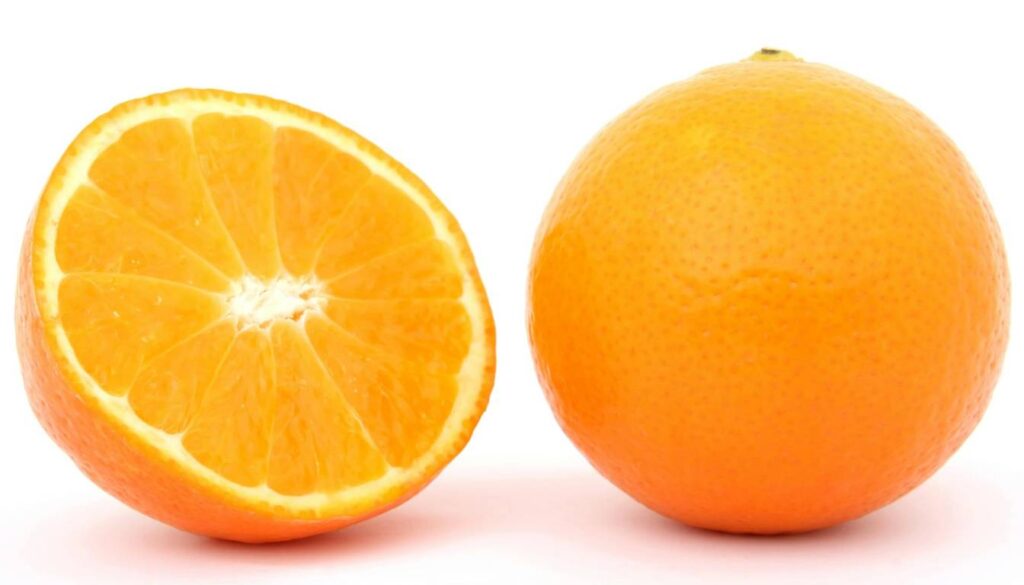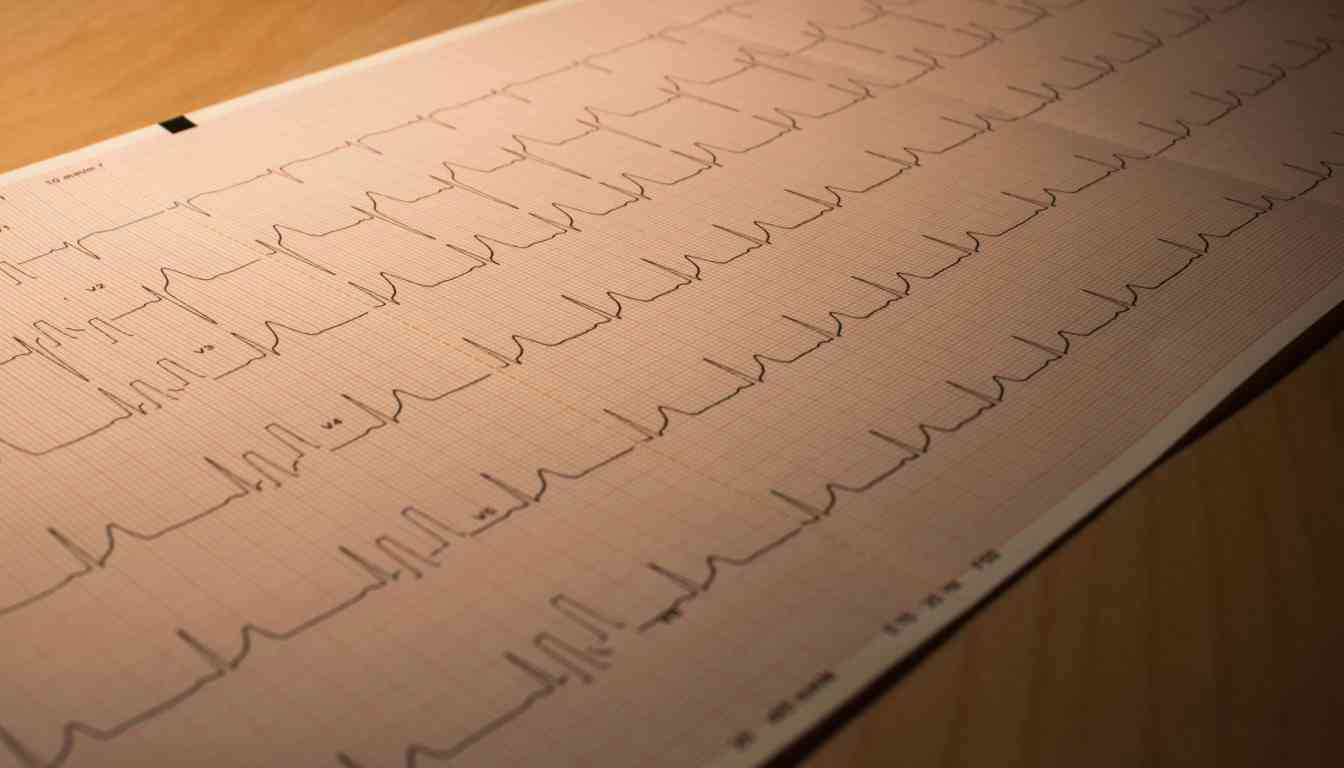You might be sipping your chamomile tea or mixing up a concoction of ginseng, wondering, “Could these beloved herbs be the cause of my racing heart?” Well, worry no more! Today, we’re going to unravel this mystery. Can herbal supplements cause heart palpitations? Let’s find out!
Hello, fellow herb enthusiasts! Today, we’re diving into a topic that’s been buzzing in the herbal community: Can Herbal Supplements Cause Heart Palpitations? It’s a question that deserves a closer look, especially when it comes to our cherished botanical remedies. So, let’s embark on this herbal adventure together and explore the intricacies of heart palpitations and the herbs that might be connected to them.
Understanding Heart Palpitations and Arrhythmias
Definition of heart palpitations
Firstly, let’s talk about Heart Palpitations. These are feelings of having a fast-beating, fluttering, or pounding heart. It’s like your heart is running a marathon while you’re sitting still!
Next up, Heart Palpitations can be felt in your chest, neck, or throat. Your heartbeat may feel like it’s racing, pounding, fluttering, or like you have missed heartbeats. It’s like your heart is dancing to its own rhythm!
Now, let’s talk about the duration of Heart Palpitations. They can last seconds, minutes, or longer. It’s like your heart is going on a roller coaster ride!
But wait, there’s more. Heart Palpitations can happen at any time, even if you are resting or doing normal activities. It’s like your heart has a mind of its own!
So there you have it! The deep dive into the Definition of Heart Palpitations in the context of “Can Herbal Supplements Cause Heart Palpitations?”. Remember, while heart palpitations can be scary, they’re usually harmless. However, if you keep getting them or you also have other symptoms, it’s important to get medical help.
Types of heart arrhythmias
Firstly, let’s talk about Heart Arrhythmias. These are conditions where the heart beats abnormally fast, slow, or in an irregular pattern. It’s like your heart is dancing to its rhythm!
Next up, we have Atrial Fibrillation (AF). This is the most common type of arrhythmia, where the heart beats irregularly and faster than normal. It’s like your heart is running a marathon while you’re sitting still!
Now, let’s move on to Supraventricular Tachycardia. This is a condition where there are episodes of abnormally fast heart rate at rest. It’s like your heart is sprinting when it should be walking!
But wait, there’s more! We also have Bradycardia. This is a condition where the heart beats more slowly than normal. It’s like your heart is taking a stroll!
Can Herbal Supplements Cause Heart Palpitations?

Ah, the moment of truth! Let’s delve into the herbs that might be shaking things up in your heart department.
Bitter orange
Ah, Bitter Orange – a citrusy twist in the world of herbal supplements! Picture this fruit as the rebel of the citrus family, with a zesty kick that can wake up your senses. But hold on to your hats, because this herbal ingredient has a few surprises up its sleeve!
You see, Bitter Orange, scientifically known as Citrus aurantium, has been quite the buzz in the herbal world. It’s often hailed for its potential to boost metabolism and aid in weight management. But here’s the twist in the tale: it can also be the mischievous trickster behind those unexpected heart palpitations.
Now, don’t get me wrong, Bitter Orange isn’t inherently bad. It’s loaded with vitamin C and other goodies that can do wonders for your health. But, and it’s a big but, it contains a compound called synephrine. This little guy can have quite an impact on your heart rate and blood pressure.
Imagine it as your heart getting a sudden jolt of energy like it’s had one too many cups of espresso. It starts tap-dancing to its rhythm, and before you know it, you’re in the midst of a palpitation party!
if you’re thinking about adding Bitter Orange to your herbal repertoire, it’s best to do so with caution. Consulting a healthcare provider or herbalist is like having a dance instructor to guide you through the steps. They can help you find the right dosage and ensure you’re not setting off any heart-fluttering alarms.
In a nutshell, Bitter Orange is like that wild card in a deck of herbal remedies. It brings excitement, but you’ve got to handle it with care. So, when it comes to this zesty culprit, remember: knowledge is your best dance partner! Now, let’s tango on to our next herbal revelation!
Ephedra The Elixir Of Gods – Get Yours Here.
This plant, also known as Ma Huang, has been used in Chinese medicine for thousands of years. Ephedra is a stimulant herb usually from the stem and branches of Ephedra sinica. Most ephedra species contain the chemical ephedrine. The ephedrine in ephedra is responsible for its therapeutic effects and also its serious safety concerns. It stimulates the heart, lungs, and nervous system. Remember, while Ephedra has potential benefits, it should be used responsibly and under medical supervision.
Yohimbe – Get Yours Here
This evergreen tree native to Africa is a treasure trove of medicinal properties. Yohimbe contains a compound called yohimbine. This potent compound is traditionally used as an aphrodisiac and to enhance sexual performance.
The yohimbine in Yohimbe can increase blood flow and nerve impulses to the penis or vagina. However, it can also cause heart palpitations. Remember, while Yohimbe has potential benefits, it should be used responsibly and under medical supervision.
Kava – Get Organic Kava Here.
This plant, also known as Piper methysticum, is native to the South Pacific islands. Kava is traditionally used as a ceremonial drink to promote a state of relaxation. While Kava is known for its relaxing and stress-reducing properties, it has been linked with several health concerns, including potential liver injury.
Comfrey – Get Yours Here
This plant, also known as Symphytum officinale, is a perennial flower that grows naturally along riverbanks and in grasslands. Comfrey is famous for its long, slender leaves and black-skinned roots. Comfrey has been used in traditional medicine for muscle sprains, bruises, burns, joint inflammation, and more. Remember, while Comfrey has potential benefits, it should be used responsibly and under medical supervision.
Other Substances That Can Cause Heart Palpitations
Caffeine
Ah, dear caffeine, the trusty sidekick of morning routines everywhere! But, hold onto your mugs, because this energetic elixir has its quirks, especially when it comes to our hearts!
Caffeine is the alarm clock for your senses. But, and it’s a robust “but,” it’s not always all sunshine and rainbows, especially for our hearts. Imagine this: you’ve just downed a double shot of espresso, and suddenly, your heart decides it’s auditioning for a drumming gig. It’s like your heart’s got a caffeine-fueled DJ, cranking up the beats per minute. And there you have it – the potential setup for heart palpitations!
Now, don’t get me wrong, caffeine has its merits. It’s a loyal companion for those early-morning meetings and late-night study sessions. But, here comes the grand finale, it can be a bit of a diva when it comes to your heart’s rhythm.
Remember, knowledge is your best companion when it comes to managing caffeine’s rhythm in your life. Now, let’s brew up our next adventure in herbal enlightenment!
Nicotine
Nicotine is a naturally produced alkaloid. It’s found in the nightshade family of plants, most predominantly in tobacco. Is widely used recreationally as a stimulant and anxiolytic. As a pharmaceutical drug, it is used for smoking cessation to relieve withdrawal symptoms.
While nicotine is known for its stimulating effects, it can also cause heart palpitations. Nicotine has potential benefits but it should be used responsibly and under medical supervision.
Certain medications
It’s not just herbs and lifestyle choices that can stir up a heart-fluttering storm. Some medications, both prescription and over-the-counter, have the potential to cause palpitations. Always consult your healthcare provider for guidance.
How to Deal With Heart Palpitations
Recognizing symptoms
Symptoms can be physical, such as chest pain or a racing heart, or emotional, such as feelings of fear or anxiety. Recognizing symptoms early can lead to better management and treatment outcomes.
Talking to a doctor
When in doubt, seek professional advice. Your healthcare provider can offer insights tailored to your specific situation.
Managing risk factors
This involves identifying, assessing, and controlling risks. Managing Risk Factors is not just about avoiding risks. Effective risk management can lead to better health outcomes and improved quality of life. Remember, while managing risk factors can be challenging, it’s an important step towards better health.
Lifestyle changes
These are modifications you might make to your everyday routines. Lifestyle Changes can include eating a balanced diet, getting regular exercise, managing stress, and quitting smoking. Making lifestyle changes can be challenging but it’s an important step toward better health.
Safe use of herbal supplements
If you’re passionate about your herbal remedies, fear not! With proper knowledge and moderation, you can continue to enjoy the benefits without setting off any cardiac alarms.
Before You Go – Can Herbal Supplements Cause Heart Palpitations?

Can Herbal Supplements Cause Heart Palpitations? It’s a nuanced topic that calls for awareness and a balanced approach. Remember, knowledge is the key to harnessing the power of herbs while keeping our hearts in harmony. So, embark on your herbal journey with wisdom, and let your heartbeat to the rhythm of health and vitality!
Can Herbal Supplements Cause Heart Palpitations?
Envision this: You’re concerned about the effects of herbal supplements on your health. You’re ready to delve into the facts. But where do you start? That’s where The Herb Prof comes in!
With The Herb Prof, you’ve got a guide right at your fingertips. It’s like having a personal herbalist guiding you through each step of understanding the potential effects of herbal supplements on heart palpitations. How cool is that?
But wait, there’s more! The Herb Prof isn’t just about heart palpitations and herbal supplements. It’s a hub for all things herbal. So, while you’re there, why not explore a bit? You might discover a new herbal passion!
So, next time you’re ready to delve into the world of herbal supplements and their potential effects on heart palpitations, remember to visit The Herb Prof. Your herbal adventure awaits!
References – Can Herbal Supplements Cause Heart Palpitations?
Little Herb Encyclopedia, by Jack Ritchason; N.D., Woodland Publishing Incorporated, 1995
The Ultimate Healing System, Course Manual, Copyright 1985, Don Lepore
Planetary Herbology, Michael Tierra, C.A., N.D., Lotus Press, 1988
Handbook of Medicinal Herbs, by James A. Duke, Pub. CRP Second Edition 2007
The Complete Medicinal Herbal, by Penelope Ody, Published by Dorling Kindersley
Check the Following Articles!
What Herbal Remedies Are Good For Tinnitus?
What Herbal Remedies Are Good For COPD?
Can Herbal Remedies Cause Headache?
Can Herbal Supplements Cause Weight Gain?
Frequently Asked Questions – Can Herbal Supplements Cause Heart Palpitations?
1. What are heart palpitations?
Heart palpitations are feelings of having a fast-beating, fluttering or pounding heart.
2. What are heart arrhythmias?
Heart arrhythmias are conditions where the heart beats abnormally fast, slow, or in an irregular pattern.
3, Which herbal supplements can cause heart palpitations?
Certain herbal supplements like Bitter Orange, Ephedra, Yohimbe, Ma Huang, Kava, and Comfrey have been linked to heart palpitations.
4. Which other substances can cause heart palpitations?
Apart from herbal supplements, other substances like Caffeine and Nicotine can also cause heart palpitations.
5. How can one deal with heart palpitations?
Recognizing symptoms, talking to a doctor, managing risk factors, making lifestyle changes, and ensuring safe use of herbal supplements can help deal with heart palpitations.
6. What is the role of Fenugreek in heart palpitations?
Fenugreek has been shown to control appetite and reduce food intake, potentially aiding in weight management.
7. What is the role of Cayenne Pepper in heart palpitations?
Cayenne Pepper contains capsaicin which has been shown to increase metabolism and reduce hunger, potentially aiding in weight management.
8. What is the role of Ginger in heart palpitations?
Ginger may aid digestion, reduce nausea, help fight the flu and common cold, and aid in weight management.
9. What is the role of Yerba Mate Tea, Hibiscus Tea, and Rooibos Tea in heart palpitations?
These teas are important sources of antioxidants and can prevent some oxidation-related stresses, potentially aiding in weight management.
10. What is the role of Bitter Orange in heart palpitations?
Bitter Orange is a citrus fruit that has been linked with several health concerns, including potential liver injury.
11. What is the role of Ephedra in heart palpitations?
Ephedra is a plant that contains a compound called ephedrine which can increase blood flow and nerve impulses to the penis or vagina. However, it can also cause heart palpitations.
12. What is the role of Yohimbe in heart palpitations?
Yohimbe contains a compound called yohimbine which helps you stay alert and prevent the onset of tiredness. However, it can also cause heart palpitations.
13. What is the role of Kava in heart palpitations?
Kava is a plant that is known for its relaxing and stress-reducing properties but it has been linked with several health concerns, including potential liver injury.
14. What is the role of Comfrey in heart palpitations?
Comfrey is a plant that has been used in traditional medicine for muscle sprains, bruises, burns, joint inflammation and more. However, it can also cause liver damage and lung damage if consumed in large amounts over time.
15. What is the role of Caffeine in heart palpitations?
Caffeine is a natural stimulant most commonly found in tea, coffee, and cacao plants. However, it can also cause heart palpitations.
16. What is the role of Nicotine in heart palpitations?
Nicotine is a naturally produced alkaloid found in the nightshade family of plants, most predominantly in tobacco. However, it can also cause heart palpitations.
